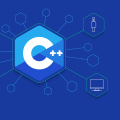Are you a beginner coder looking to make your mark in the world of open source projects on GitHub and GitLab? Contributing to open source projects on GitHub and GitLab can be a great way to gain experience and build your portfolio, while also making a real difference in the tech community. In this article, we'll explore the basics of getting started with ? Contributing to open source projects on GitHub and GitLab can be a great way to gain experience and build your portfolio, while also making a real difference in the tech community. In this article, we'll explore the basics of getting started with The Best Coding Tutoring Platforms for open source projects on GitHub and GitLab as a beginner coder. We'll look at the different ways you can contribute, the best practices you should follow, and the resources that can help you on your journey. Are you a beginner coder looking to make your mark in the world of open source projects on GitHub and GitLab? Contributing to open source projects on GitHub and GitLab can be a great way to gain experience and build your portfolio, while also making a real difference in the tech community. In this article, we'll explore the basics of getting started with The Best Coding Tutoring Platforms for open source projects on GitHub and GitLab as a beginner coder. We'll look at the different ways you can contribute, the best practices you should follow, and the resources that can help you on your journey.? Contributing to open source projects on GitHub and GitLab can be a great way to gain experience and build your portfolio, while also making a real difference in the tech community. In this article, we'll explore the basics of getting started with The Best Coding Tutoring Platforms for open source projects on GitHub and GitLab as a beginner coder. We'll look at the different ways you can contribute, the best practices you should follow, and the resources that can help you on your journey. Are you a beginner coder looking to make your mark in the world of open source projects on GitHub and GitLab? Contributing to open source projects on GitHub and GitLab can be a great way to gain experience and build your portfolio, while also making a real difference in the tech community. In this article, we'll explore the basics of getting started with The Best Coding Tutoring Platforms for open source projects on GitHub and GitLab as a beginner coder. We'll look at the different ways you can contribute, the best practices you should follow, and the resources that can help you on your journey.
Overview of Open Source Projects on GitHub and GitLab
Open source projects on GitHub and GitLab are collaborative efforts in which individuals contribute their time, knowledge, and resources to create something meaningful. These platforms often host software, but they can also host online tools, educational materials, or anything else that can benefit from collective development. Open source projects are beneficial for all types of coders, especially beginners.Open source projects provide an opportunity to get started in coding and learn from experienced developers. By getting involved in an open source project, you can gain experience working on real-world applications and build a portfolio with tangible results. You can also make connections with other coders and learn from their experiences. Some successful examples of open source projects are the Linux operating system, the Apache web server, and the WordPress content management system.
These projects have been widely adopted and have made a significant impact on the tech industry. In addition to these well-known projects, there are many others that are smaller in scale but can still provide valuable learning experiences and opportunities for collaboration. Contributing to an open source project is a great way to build skills and develop your coding abilities.
Developing Your Skills
As a beginner coder, it is important to continuously develop your skills. Building up a good understanding of programming languages and technologies is essential for contributing to open source projects.There are many resources available to help you learn, such as tutorials, online courses, and books. It’s important to stay motivated and make progress, so find a resource that works for you and stick with it. Tutorials can be a great way to get started. They provide step-by-step instructions to help you understand the basics of a language or technology. Online courses offer more in-depth coverage of a subject and may include additional resources such as quizzes, assignments, and video lectures.
Finally, books can provide detailed explanations of topics and include helpful examples. Once you’ve chosen a resource, it’s important to stay motivated and make progress. Set realistic goals for yourself and break down tasks into manageable chunks. Don’t be afraid to ask questions or reach out for help if you get stuck.
Finally, practice makes perfect – so don’t be afraid to get your hands dirty and start coding!
What to Expect
Contributing to an open source project as a beginner coder can be both rewarding and challenging. Understanding what to expect will help you to make the most of your experience. First, it's important to recognize that open source projects are created and managed by people with varying levels of technical expertise and different motivations. So, you may encounter feedback or criticism that is difficult to process.It's important to remember that the goal of any open source project is to improve the quality of the code and make it as useful as possible for its users. As a contributor, you should strive to keep this goal in mind when engaging with other contributors. When conflicts arise, it's essential to practice good communication skills. Be respectful of other people's opinions, and don't be afraid to ask questions or seek clarification if something isn't clear. This will help to ensure that everyone is on the same page, which is essential for successful collaboration. The rewards of contributing to an open source project can be significant.
You can gain recognition from peers, build your professional network, and even create new job opportunities. It's important to take advantage of these opportunities and use them to further your own personal and professional development.
Finding the Right Project
When deciding to contribute to an open source project as a beginner coder, finding the right project is key. Choosing the right project will help ensure that you have a positive experience and can make meaningful contributions. Here are some tips for finding an open source project that is right for you:Evaluate the scope of the project: When evaluating potential projects, consider the scope of the project and whether it aligns with your interests and skill level.Are you comfortable taking on a large project or would you prefer something more manageable? Also, look at how active the project is and what kind of development timeline is involved.
Assess the team dynamics:
A great way to get a feel for the project is to observe how the team interacts. Are there clear communication channels, such as a mailing list or chat room? Do team members respond to questions in a timely fashion? Is the team welcoming to new members? These are all important factors to consider when evaluating a potential project.Find out more:
Before committing to a project, it is important to find out as much as possible about it. Read the project's documentation and readme files, look at past commits, review bug reports and feature requests, and check out any discussion forums related to the project. This will help you get an understanding of what kind of work is involved and how difficult it may be for you to contribute.Contributing Process
Contributing to open source projects can seem like a daunting task for beginner coders.However, it can be a rewarding experience and provide an excellent opportunity to learn new skills. This section will provide an overview of the process of contributing to an open source project, including setting up a development environment, familiarizing yourself with the codebase, and submitting contributions. The first step is to set up a development environment. This typically involves downloading the source code, setting up a local server, and installing any necessary dependencies.
It is important to make sure that the development environment is properly configured so that the codebase can be tested locally before submitting any changes. Once the development environment is set up, it is important to familiarize yourself with the codebase. This can involve reading through existing code, understanding how it works, and looking for areas where improvements can be made. It is also beneficial to understand the project’s coding conventions and best practices in order to ensure that your contributions are consistent with the project.
Once you are comfortable with the codebase and have identified areas for improvement, you can submit contributions by creating a pull request or patch. It is important to provide detailed documentation with each contribution to help other contributors understand the changes that you have made. Finally, it is important to be mindful of how you communicate with other contributors. Many open source projects use issue trackers, mailing lists, and chat rooms to facilitate communication between contributors.
It is important to use these tools in a respectful manner, as this will help ensure that the project runs smoothly. Open source projects provide a great opportunity for beginner coders to build their skills and make a positive impact. Contributing to open source projects is an excellent way to increase your coding knowledge, develop a portfolio of work, and create meaningful connections with other coders. By taking the time to research potential projects, understanding the contribution process, and developing your coding skills, you can be an effective contributor to open source projects. So take the first step and get involved in open source projects today!.











